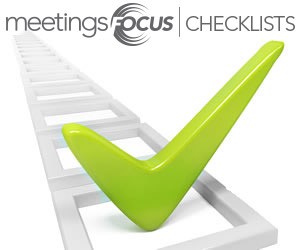One thing meeting planners quickly learn is that you can't please every attendee, though we often try our best to do so!
In the world of event food and beverage, it really is possible to please everybody with special dietary needs. We just can’t rely on the old one-size-fits-all approach to catering.
With food allergies on the rise, already affecting 15 million Americans and 300 million individuals worldwide, we have an opportunity—and an obligation—to help them stay safe while they are at our meetings and events. A guest with food allergies or who follows a vegan lifestyle shouldn’t have to stop eating within their parameters just because they are attending your meeting. They should be provided the same culinary experience as everyone else.
The good news is, it’s not more expensive to accommodate dietary needs. If you ask the attendees for their needs up front and find chefs and caterers who know their menus—the ingredients, where the ingredients were sourced and how the items are prepared and served—the costs will be the same.
The following tips will help make menu selections safer, healthier and able to meet everyone’s needs:
- Incorporate F&B questions into your site and vendor selection. Ask how they accommodate dietary needs and if they have menu items that meet both specific, or a variety, of needs.
- Ask for dietary needs on your registration system. The options should be specific with the opportunity to explain. Use checkboxes for specific needs—vegan, vegetarian, kosher, gluten-free and food allergies (list the top eight) — and then ask for “other dietary restrictions.” Don’t forget to ask speakers, guests, VIPs, staff and vendors.
- Communicate the needs to your hotel and catering partners in advance. Not 12 hours in advance, but weeks and, if possible, months ahead of the event. The earlier the needs are communicated, the more opportunity chefs have to design creative menus that everyone can enjoy.
- You can feed everyone the same meal. If it looks good and tastes good, everyone will eat it, even if it is gluten- and/or allergy-free. A single allergy-free menu will alleviate the need for special cards. However, it is imperative you communicate this to your guests. If they don’t know, they will not understand they can eat the meal.
- Use software that can help you locate guests easily. Social Tables, for instance, allows you to tag guests with their needs in a map of the ballroom.
- Acknowledge your guests on-site. Don’t brand them with a badge ribbon, but provide them “dietary cards” they can use for each meal—yellow for gluten-free, blue for dairy-free, etc. If their needs are more complicated, introduce them to the banquet captain and the chef.
- Inform all of your food service partners. If your program has off-site events with different caterers, make sure they know about the needs of your guests. Great service at the host hotel won’t make up for poor service at an off-site event.
- Be knowledgeable. Understand the basics of different dietary needs and make sure your staff and food service providers do, too. If you don’t know, ask.
- Be prepared. Ensure you and your staff can recognize symptoms of an allergic reaction and know whom to call in case of an emergency. Ask your guests who have food allergies what you need to do if they have a reaction. Understand the venue’s emergency procedures. Check to see if emergency personnel carry epinephrine.
This little bit of extra effort goes a long way. If you take care of guests with special dietary needs, they’ll remember your meeting as one of the best they ever attended.







